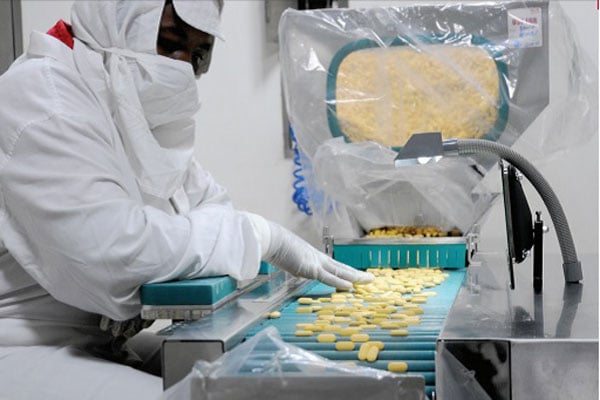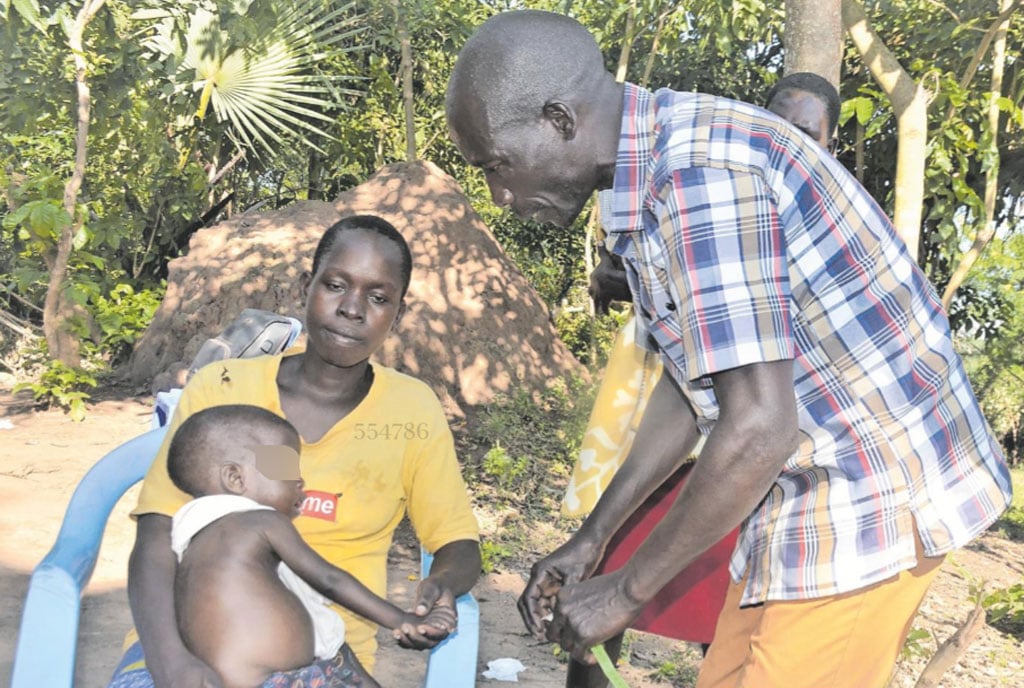
People enter a mobile clinic at the Health Ministry headquarters in Kampala on September 1, 2024 to undergo TB screening.PHOTO/TONNY ABET
A randomised controlled trial among 114 study participants was conducted between 2020 and 2022 at the Makerere University Lung Institute.
A team of researchers from Uganda and the United Kingdom has said they found a cost-effective intervention that improves productivity and quality of life of persons with post-TB lung disease (PTLD).
According to researchers, around half of patients who complete the tuberculosis (TB) treatment in Uganda struggle with PTLD. This debilitating condition is concerning in a country where 90,000 people contract TB yearly.
PTLD can manifest as recurrent cough, shortness of breath (breathlessness), and exercise intolerance and this affects the productivity and quality of life of the individuals. Scientists say PTLD happens because of damage to the airway and lungs as a result of TB infection, delays in getting treatment, and the response of the body’s immune system to infection.
To determine the effectiveness of the new intervention, a randomised controlled trial among 114 study participants was conducted between 2020 and 2022 at the Kampala-based Makerere University Lung Institute (MLI). The study dubbed ‘RECHARGE’ was done by researchers from MLI, Mulago Hospital, University of Leicester and University of Sheffield.
The researchers from the two countries subjected the adults with PTLD to an intervention called Pulmonary Rehabilitation (PR). Dr Winceslaus Katagira, a researcher from MLI, explains that PR is a supervised medical programme that helps people with PTLD breathe and live better. He says it involved education and exercises to build endurance and strength. “Exercise training in PR involved flexibility (stretching) exercise which is usually done as part of warm up and cool down,” Dr Katagira explained.
“Endurance (cardiopulmonary exercise) involved walking and cycling stationary bikes while resistance involved flexibility (strengthening) exercises involved biceps curl, pull-ups, sit-to-stand and step-ups,” he added.
The participants were subjected to two sessions a week (for six weeks) –two hours of education and exercises. The researchers used six exercise training stations –four for muscle strengthening and two for endurance. Fifty-seven participants were subjected to PR and the other 57 were in the control arm (usual care) –inhalation therapies, tobacco cessation therapies and wood fuel exposure reduction.
Results
“In a young study population with disability associated with PTLD, our six-week PR programme elicited clinically and cost-effective improvements in exercise capacity, and health-related quality of life compared with usual care,” Dr Katagira said.
The researchers observed that there was good adherence to the exercise and the participants improved in distance they walked before getting tired and reduced PTLD symptoms like breathlessness, signalling increased endurance and strength.
Prof Jesse Matheson, an economist from the University of Sheffield, said in the cost-benefit analysis, they found improvement in hours the participants worked, and it is not expensive to implement the intervention. He also said the programme resulted in positive quality of life outcomes. “The average treated subject worked more 5.2 productive work hours per week. This is equal to an increase of Shs92,000 per month for the average teacher in Uganda,” he revealed.
Cost
Prof Matheson said the programme cost per patient is $114 (about Shs410,000) but this includes the cost of space and payment of health workers, which may not be applicable in public health facility settings where this is already provided for by the government.
Prof Bruce Kirenga, the MLI director, said the clinical trial is a landmark study showing that pulmonary rehabilitation significantly improves respiratory function and quality of life for TB survivors. “This breakthrough could redefine care for post-TB lung disease,” he said.
Dr Stavia Turyahabwe, the commissioner for Communicable Disease Control at the Health Ministry, said they will look into the study and engage the researchers on the next steps --the possibility of scaling it up.
Background
Uganda ranks among the 22 countries with the highest burden of TB, with an estimated incidence of 200 cases per 100,000.
Collaborative efforts have led to significant progress in TB treatment. Treatment success rates have improved from 72 percent in 2015 to 88 percent in 2022.






